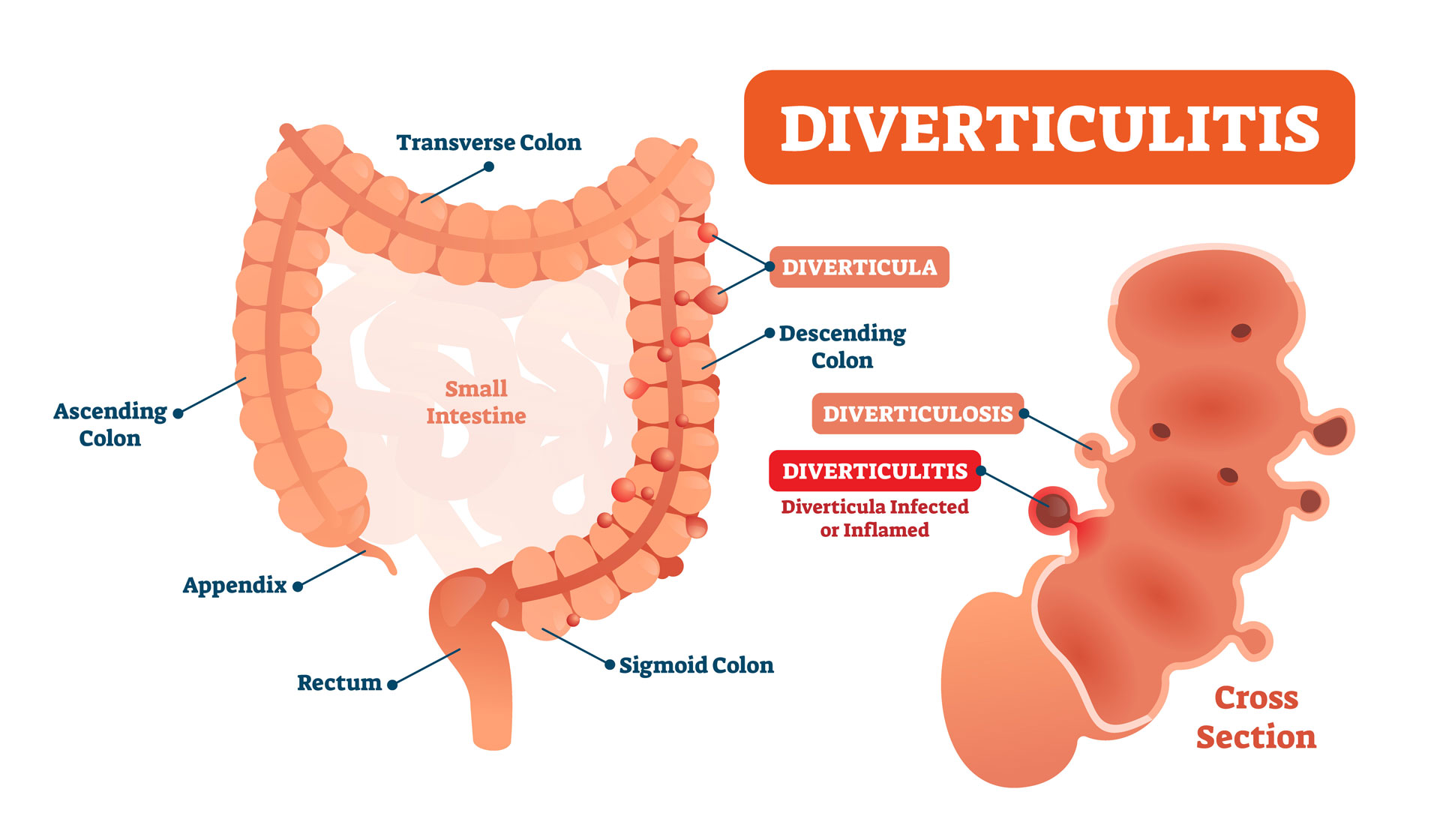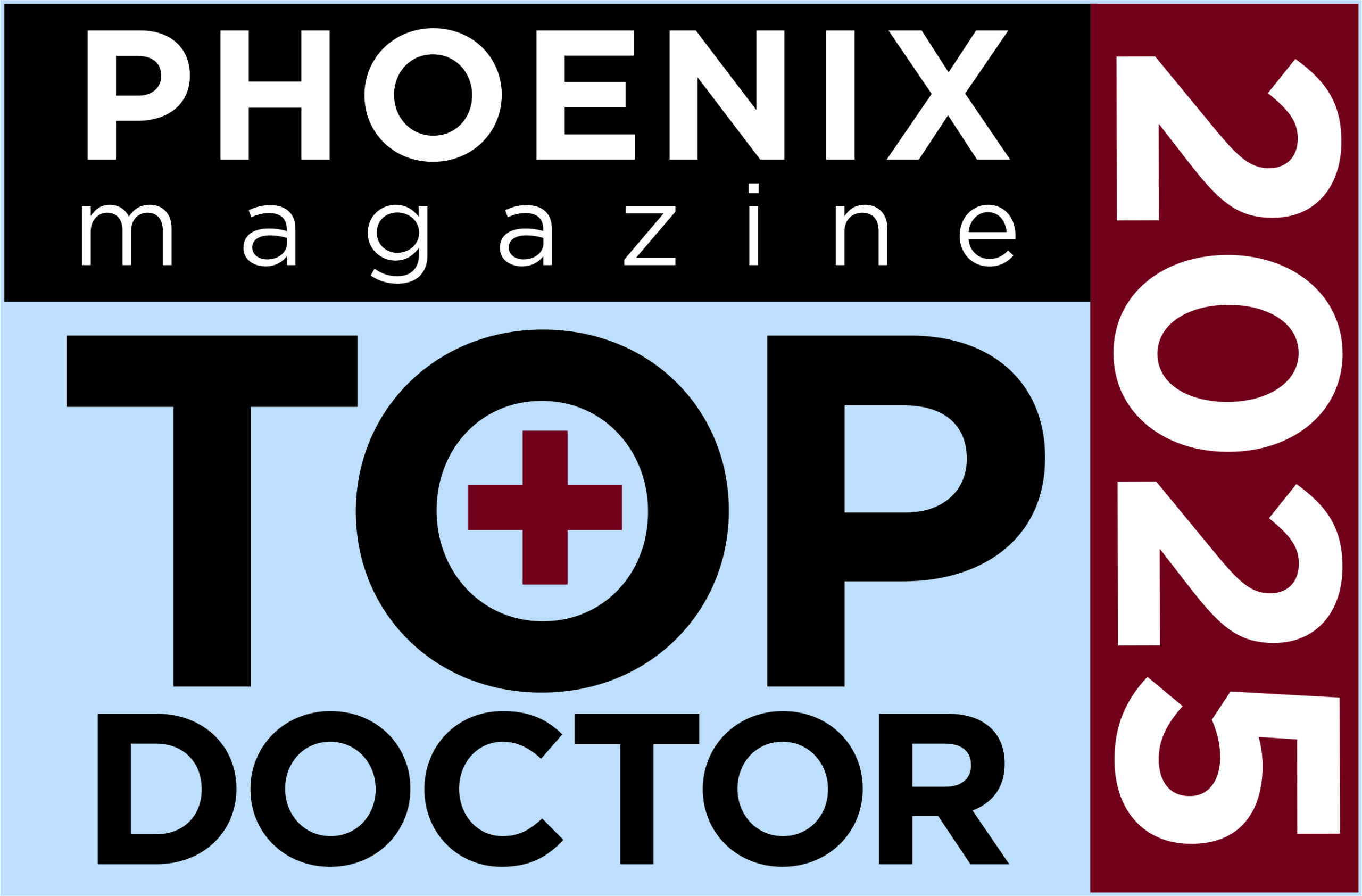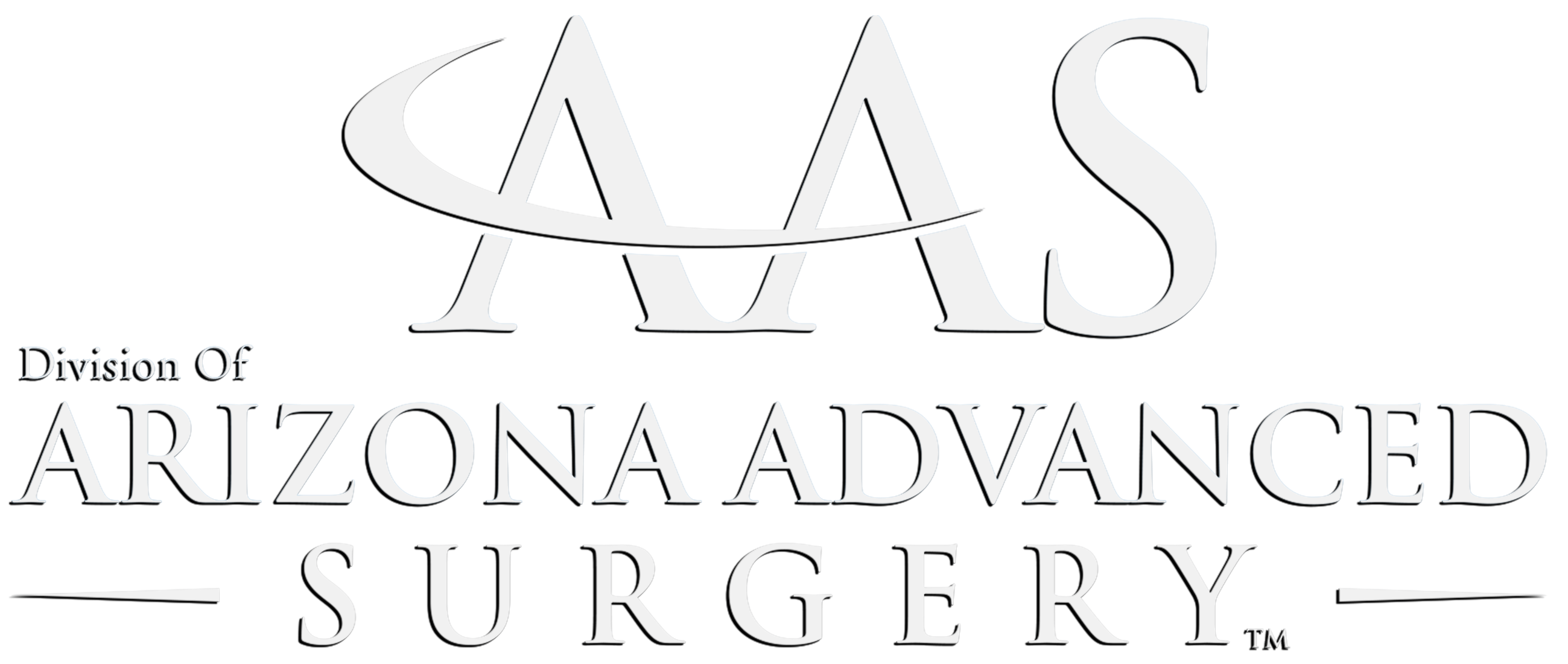Conditions And Treatments
Home / Areas Of Specialty / Diverticulitis
Diverticulitis And Diverticulosis
Diverticulitis is a very common condition in the United States. This is a very important cause of hospital admissions. It is a condition in which the wall of the colon forms a sac like protrusion which get inflamed. Diverticulosis is a benign condition and patients are asymptomatic and do not need any treatment. It can be seen during a routine colonoscopy procedure. There are many causes of diverticulosis. Most common cause include family history and genetics, less fiber intake in the diet, more red meat in the diet. As a key point, presence of diverticuli does not require any treatment.
What is Diverticulitis?
Diverticulitis is a condition when these sac like protrusions get inflamed and, It can present in the wide variety of conditions. You may require medical or surgical treatment for this condition. It can cause abdominal pain, abscess formation, stricture or narrowing of the colon, fistula formation to the surrounding organs.
Symptoms And Signs
Diverticulosis by itself may not cause any symptoms and is a benign condition. But it can present in different ways including severe bleeding, abscess formation or perforation of the colon leading to sepsis. Additionally, if you have recurrent diverticulitis, that can cause stricture or narrowing of the colon causing blockage or fistula formation to the surrounding organs. Although diverticulitis can involve any portion of the colon but most common area of involvement of diverticulitis is sigmoid colon. Usual symptoms are abdominal pain and tenderness around the affected part of the colon. Diverticulitis commonly affects Sigmoid colon. Consequently, it causes abdominal pain in left lower abdominal area, fever and cramping.

Diagnosis And Treatment Of Diverticulitis
In acute diverticulitis the patients usually presented with the abdominal pain, fever and change in the bowel habits. Your physician can treat simple non-complicated diverticulitis with dietary modifications only, but sometime may require addition of antibiotics. Sometime patients may also require CT scan or blood work. Basically, most of the diverticulitis patients do not require hospitalizations. Another key point is that your physician will advise you to have a colonoscopy for diagnosis and also following the acute attack of diverticulitis.
You may need an intervention with or without surgery under following circumstances:
- If you have a diverticular abscess which is a condition of infection inside the abdominal cavity. You may need antibiotics and a drainage procedure for the abscess.
- If there is a blockage or stricture or narrowing of the colon leading to obstruction then it may need a surgical intervention.
- If there is a free perforation or hole in the colon leading to sepsis and significant sickness.
- If there is a fistula formation it can affect surrounding organs. Fistula between colon and Urinary Bladder is known as Colovesical Fistula. Fistula with the vagina it is known as Colovaginal Fistula. A fistula can form between colon and surrounding bowel known as Enteroenteric fistula.
- If there are recurrent attacks of diverticulitis and failure of medical management leading to recurrent persistent symptoms.
What is the diet to prevent Diverticulitis?
There is no definitive answer to what foods you should avoid with diverticulitis, as different people may have different reactions to certain foods. However, some general guidelines for diverticulitis diet are:
- During a flare-up, you may benefit from following a low-fiber diet until your symptoms improve. This means avoiding foods that are high in fibre, such as whole grains,fruits and vegetables with the skin and seeds, nuts,beans and popcorn.
- After your symptoms improve, you may gradually increase your fiber intake to promote gut health and prevent future flares. Aim for 25 to 30 grams of fiber per day from a variety of sources, such as fruits, vegetables, whole grains, legumes and nuts.
- Some people may find that avoiding foods that are high in FODMAPs helps them manage their diverticulitis. FODMAPs are types of carbohydrates that can cause gas and bloating in some people. They include foods such as apples, pears, plums, milk, yogurt, ice cream, sauerkraut, kimchi, beans, soy, cabbage, Brussels sprouts, onions and garlic.
- Some research suggests that eating a diet high in red and processed meats could increase your risk of developing diverticulitis. A diet high in fruits, vegetables and whole grain may decrease the risk.
- Drink plenty of water and other fluids to stay hydrated and help your fiber intake work better.
What is a colon and Rectal Surgeon? Is Dr Singh a Board-certified Colorectal surgeon? and where does he perform his procedures.
Colon and rectal surgeons are experts in the surgical and non-surgical treatment of diseases of the colon, rectum, and anus. They have completed advanced surgical training in the treatment of these diseases, as well as full general surgical training. They are well versed in the treatment of both benign and malignant diseases of the colon, rectum, and anus and are able to perform routine screening examinations and surgically treat conditions as and if needed. Dr Singh is a double board certified in Colon and Rectal Surgery and General surgery. His practice is located in Phoenix, Glendale and Scottsdale, AZ.
For more information on Diverticulitis please click on the following link :
Diverticular Disease Expanded Version | ASCRS (fascrs.org)
Home – Colon & Rectal Care Center of Phoenix (colorectaldoc.com)

